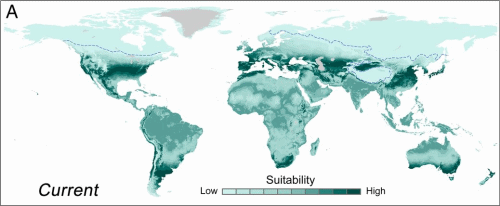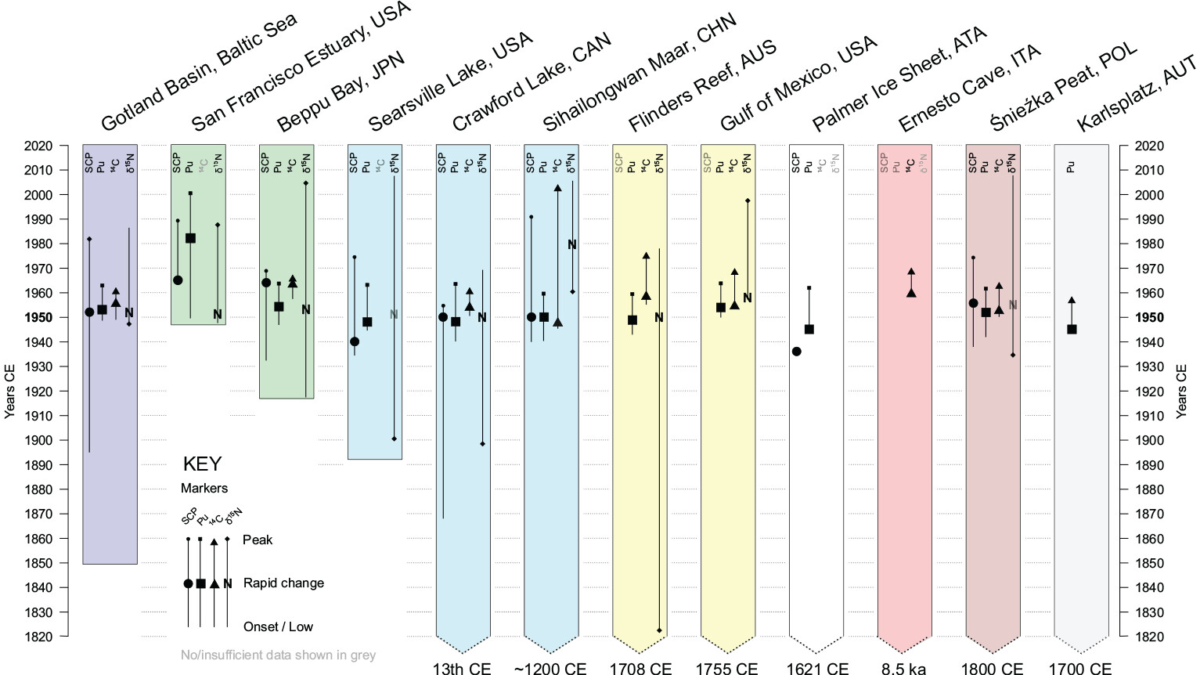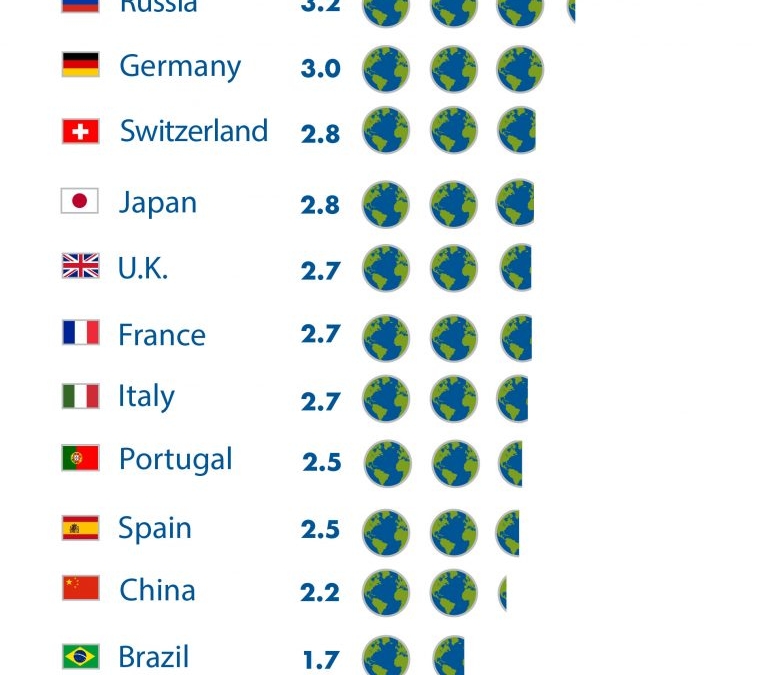Radical warming in Siberia leaves millions on unstable ground – “The permafrost is thawing so fast, we scientists can’t keep up anymore”
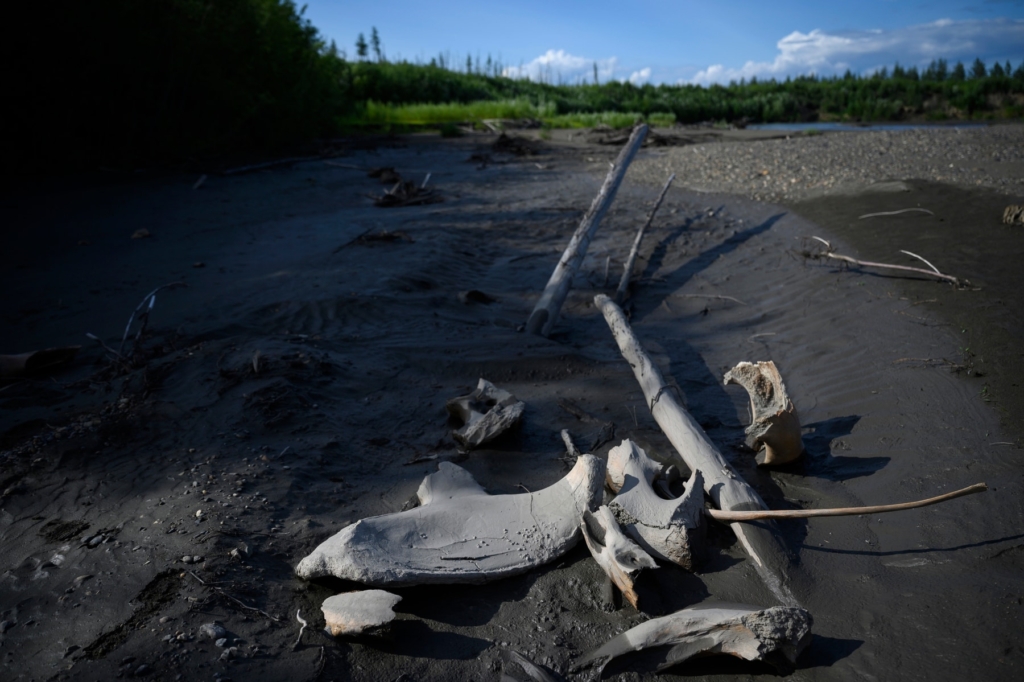
By Anton Troianovski and Chris Mooney
3 October 2019
ON THE ZYRYANKA RIVER, Russia (The Washington Post) – Andrey Danilov eased his motorboat onto the gravel riverbank, where the bones of a woolly mammoth lay scattered on the beach. A putrid odor filled the air — the stench of ancient plants and animals decomposing after millennia entombed in a frozen purgatory.
“It smells like dead bodies,” Danilov said.
Radical warming in Siberia leaves millions on unstable ground
The skeletal remains were left behind by mammoth hunters hoping to strike it rich by pulling prehistoric ivory tusks from a vast underground layer of ice and frozen dirt called permafrost. It has been rapidly thawing as Siberia has warmed up faster than almost anywhere else on Earth. Scientists say the planet’s warming must not exceed 1.5 degrees Celsius — but Siberia’s temperatures have already spiked far beyond that.
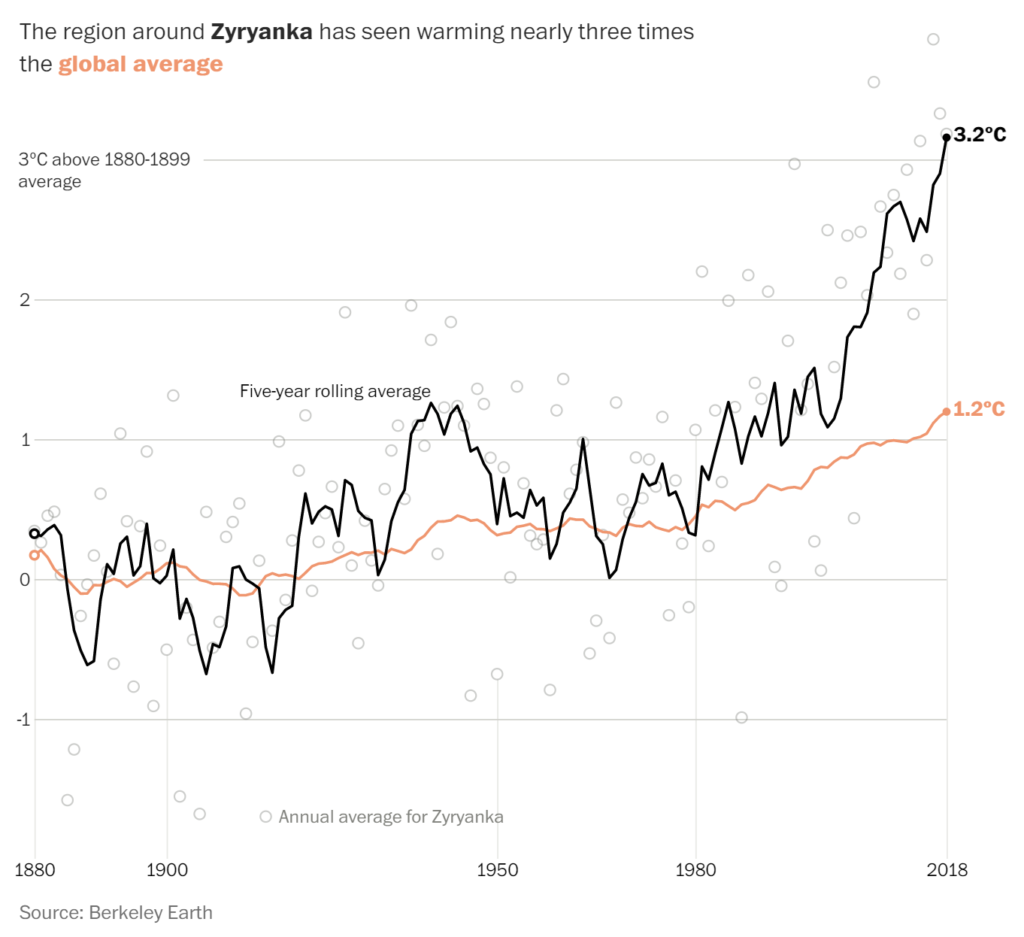
A Washington Post analysis found that the region near the town of Zyryanka, in an enormous wedge of eastern Siberia called Yakutia, has warmed by more than 3 degrees Celsius since preindustrial times — roughly triple the global average.
The permafrost that once sustained farming — and upon which villages and cities are built — is in the midst of a great thaw, blanketing the region with swamps, lakes and odd bubbles of earth that render the land virtually useless.
“The warming got in the way of our good life,” said Alexander Fedorov, deputy director of the Melnikov Permafrost Institute in the regional capital of Yakutsk. “With every year, things are getting worse and worse.”
For the 5.4 million people who live in Russia’s permafrost zone, the new climate has disrupted their homes and their livelihoods. Rivers are rising and running faster, and entire neighborhoods are falling into them. Arable land for farming has plummeted by more than half, to just 120,000 acres in 2017.
In Yakutia, an area one-third the size of the United States, cattle and reindeer herding have plunged 20 percent as the animals increasingly battle to survive the warming climate’s destruction of pastureland.
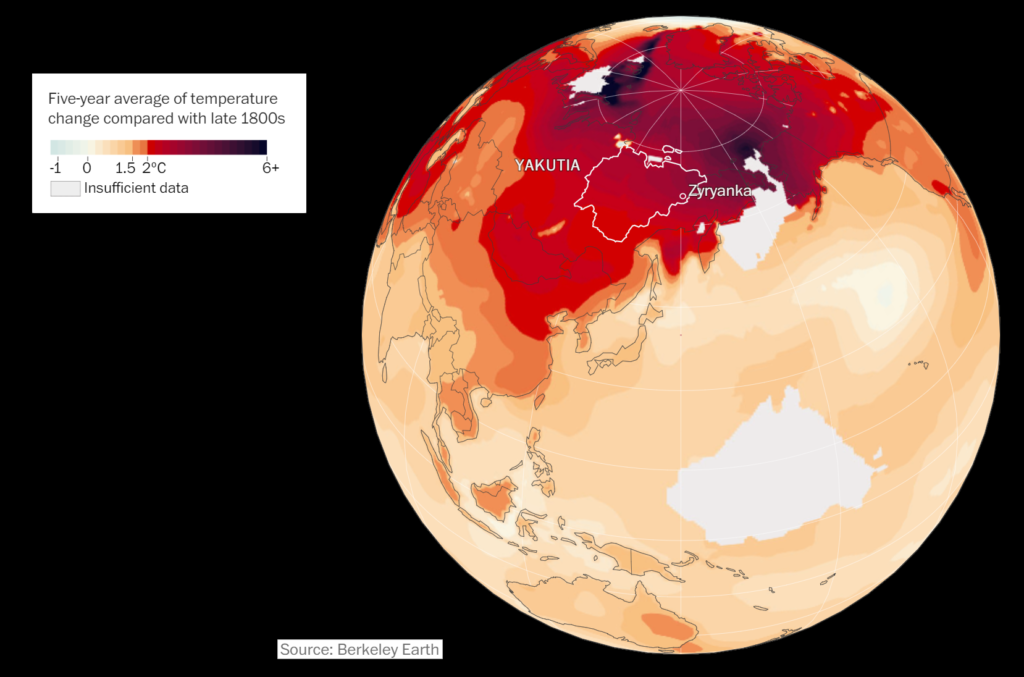
Siberians who grew up learning to read nature’s subtlest signals are being driven to migrate by a climate they no longer understand.
This migration from the countryside to cities and towns — also driven by factors such as low investment and spotty Internet — represents one of the most significant and little-noticed movements to date of climate refugees. The city of Yakutsk has seen its population surge 20 percent to more than 300,000 in the past decade.
And then there’s that rotting smell.
As the permafrost thaws, animals and plants frozen for thousands of years begin to decompose and send a steady flow of carbon dioxide and other gases into the atmosphere — accelerating climate change.
“The permafrost is thawing so fast,” said Anna Liljedahl, an associate professor at the University of Alaska in Fairbanks. “We scientists can’t keep up anymore.” [more]
Radical warming in Siberia leaves millions on unstable ground
